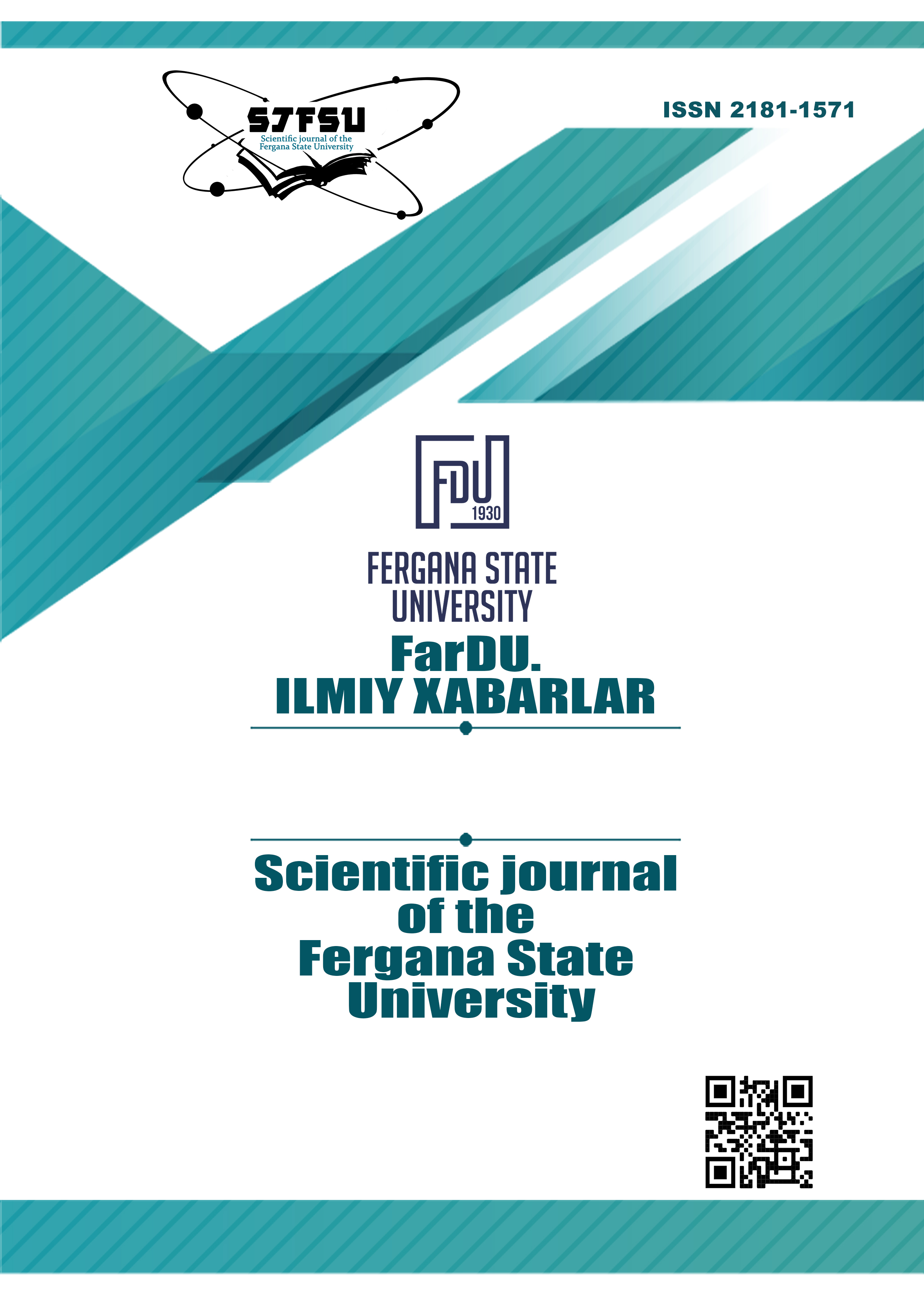INCLUSIVENESS IN EDUCATIONAL PROCESSES AS MEANS OF PROVIDING EQUAL ACCESS TO EDUCATION
Main Article Content
Abstract
In pedagogy inclusive learning is considered as means for seeking to meet the needs of all the learners, despite of their background or identity, and promoting their participation in subject matter.
Inclusive learning and teaching provides equal rights to all students to learning process that respects diversity, ensures participation, removes barriers, anticipates and accommodates different learning needs and preferences, designing and implementing teaching, learning and assessment methods that enable all learners to participate meaningfully in the learning environment program and reach their full potential.
The main focus of this article is inclusive education as an urgent issue of ensuring the involvement of all, regardless of the abilities of students, creating equal access to the educational process for all the students with disabilities and without. The article considers a number of legislative acts adopted regarding inclusiveness in education and provides information on the legislative acts which have been taken both at the global level - and in a single country, the acts directed to the revision of the educational process and also creating favorable learning conditions. It also discusses the professional training of a teacher and the development of educational material to ensure the quality of inclusiveness in the educational process.
Article Details

This work is licensed under a Creative Commons Attribution-NonCommercial-NoDerivatives 4.0 International License.
References
Salaman Declaration on Principles, Policies and Practices in the Education of Persons with Special Needs. Salamanca, Spain. 1994.
Decree of the President of the Republic of Uzbekistan. (2020). On measures to further improve the system of education and upbringing of children with special educational needs. No. PP-4860.
Decree of the Cabinet of Ministers. (2021). On approval of regulatory legal acts on inclusive education of children. No. 638.
Voronova, O.V. Становление и развитие инклюзивного образования: историко-генетический аспект. 2017. 23, (2).
Stangvik, G. The policy of integrated learning in Norway. 2013.
http://sociosphera.com/publications. 166
Goodley, D., Runswick‐Cole, K,. Barton, Len. Inclusion and critical disability studies: theorising disabled childhoods. International Studies in Sociology of Education, 2010. 20, (4), 273–290.
Kamordzhanova, N. A., Pankov, D. A., Krupenko Yu. V. Социальное предпринимательство: учетно-аналитические аспекты и практический опыт разных стран. (Social entrepreneurship: accounting and analytical aspects and practical experience of different countries) М., 2019. 252 .
Xaken, G. Тайны природы. Синергетика: учение о взаимодействии. (Secrets of nature. Synergetics: the doctrine of interaction ) М.; Ijevsk, 2003. 320.
Kharchenko, N. L. Основные этапы становления образования лиц с ОВЗ. (The main stages in the formation of the education of persons with disabilities.) Наука о человеке: гуманитарные исследования. 2020. 14, (2), 108–112.
Luzina , L.M. Философско-антропологический подход в современной методологии воспитания.( Philosophical-anthropological approach in the modern methodology of education.) autoref. dis. Ped.sciences SP., 1998. 86.
Speck, O. People with mental retardation: Education and upbringing. М., 2004. 432 .
Tamarskaya, N. Применение Интерактивных Технологий в процессе Инклюзивного Образования. Национальная ассоциация ученых (НАУ).(Application of Interactive Technologies in the process of Inclusive Education. National Association of Scientists (NAS).) Педагогические науки, . 2015. VI (11).
Sirojiddinova, D. Brief information about the history of linguoculturology. So‘nggi ilmiy tadqiqotlar nazaryasi Respublika ilmiy -uslubiy jurnali, 2022. 4, 131-134.
Sirojiddinova, D. Communication as a process of interpersonal information exchange. Journal of Integrated Education and Research. 2022. 1, (5), 335-338.
Raximjanova, D. The structural – semantic features of computer terms in English linguistics. Pedagogs journal. 2022. 20, (2), 36-40.
Safonov, M. A., Usov, S. S., Arkhipov, S. V. E-Learning application effectiveness in higher education. general research based on SWOT analysis. ICEMT, 5th International Conference on Education and Multimedia Technology. New York, 2021. 207–212. DOI: 10.1145/3481056.3481096.
Muminova, M. The problems studied in the result of the linguocultural research of the Uzbek language. Samarkand scientific journal, 2022. 6
Muminova, M. The Importance of Using Linguoculturological Terms in Linguistics. American journal of Social and Humanitarian research. ISSN:26-90-9626., 2022. 3,(10),346-351
Tadjibaeva, A., & Tashlanova, N. The collaborative approach in content and language learning. 2020. Теория и практика современной науки, 2022. (6), 31-34.
Ташланова, Н. Д. Особенности Методических Приемов Изучения Второго Иностранного Языка. (Features of Methodological Techniques for Learning a Second Foreign Language.) Central Asian Journal of Literature, Philosophy and Culture, 2022. 3(9), 1-11.
Tashlanova, N. Correlation of Didactics, Linguodidactics and Methods of Teaching Foreign Languages. Eurasian Journal of Learning and Academic Teaching, 2022. 12, 7-16.
Jurayeva, Z.Q. Specific features of language in the development of culture.Tashkent. 2022. 2, (27), 192-196, https://doi.org/10.5281/zenodo.7353385.
Jurayeva, Z.Q. Improving listening skills at preschools and primary schools. Fergana, International conference. The actual issues of preschool education., 2022. 230-232.
Obidova, G. Analyzing pragmatic activities for the speaking classroom. International scientific-practical conference and perspectives of modern technology in teaching foreign languages. 2022. 2, (27), 39-43
Obidova,G. Improving oral language skills of beginning students. Journal, Теория и практика современной науки. 2022. 70, (10), 36-39
Tadjibaeva, A. The effective ways, Methods and Techniques for teaching English. 2022. Central Asian journal of literature, philosophy and culture. 2022. 2, (3), 32-37
Tadjibaeva, A. Развитие профессиональной компетентности у студентов высших учебных заведений. Central Asian Academic Journal of Scientific Research, 2022. 2, (2), 37-42
Maxkamova, D.B Language units in English and Uzbek to express “RESPECT”in classroom and educational process. International conference. Tahkent 2022. 2, (27), 339-343.
Molina Roldan,S. How inclusive interactive learning environments benefit students without special needs. Frontiers in Psycology, 2021. 12, art. 661427

